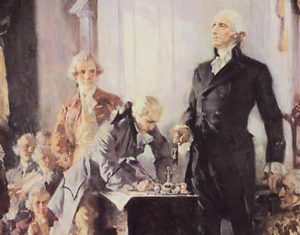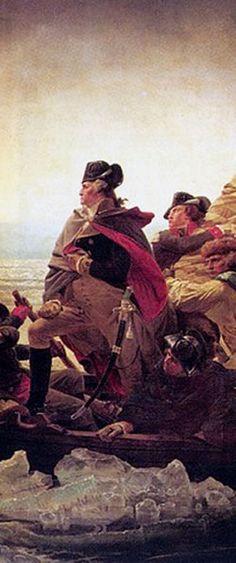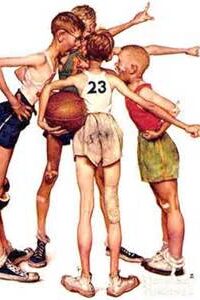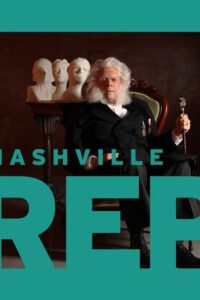I came across an article in The New Yorker recently by Adam Gopnik in which he reviews some new historical works that rethink the American Revolution. While the article was illuminating, it was his last two paragraphs that caught my attention. He recounts an action taken by George Washington to stay the execution of Charles Asgill (an execution Washington had ordered) in November of 1782. The nineteen-year-old Asgill was a captain in the British army and had been captured and held in a prisoner of war camp in Lancaster, Pennsylvania. Some months before British Loyalists had executed a captain in the Continental Army in retaliation for the death of a Loyalist soldier. The game of tit-for-tat had begun, and pressure mounted on Washington to hang a prisoner of the equal rank of captain.
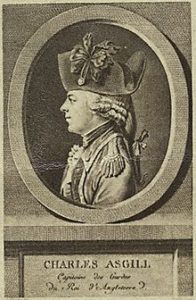
Asgill was one of twelve captains held in captivity at that camp in Lancaster. No captain stood out as particularly heinous, which would have made the selection process much easier. So twelve slips of paper were tossed into a hat and passed around the group. When Asgill withdrew his slip, it read “unfortunate.” Unfortunate indeed. An intense letter writing campaign ensued to spare the captain, led by Asgill’s mother, which inspired the French Foreign Minister to solicit on the captain’s behalf. Washington was looking for any reason to stay Asgill’s execution and these letters of a mother moved him to persuade Congress to spare the young man’s life. There are other fascinating details to this story, but this incident inspired a French artist and writer to write a play based on Washington’s intercession. Jean Luois Le Barbier sent a copy of his play to Washington with this note, “I hope, Sir, you will not disapprove of my zeal in publishing your sublime virtues in my performance.”
What a beautiful example of art imitating life, and if that were not enough, Gopnik refers to Washington as a “lifelong theater enthusiast.” This I did not know, so my curiosity was peaked, and I went on the hunt for evidence that our first president was a theater patron.
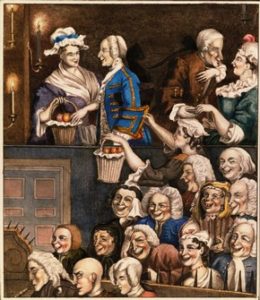
Washington recorded detailed entries in his diaries commenting on his frequent attendance at theaters in Williamsburg, Philadelphia, New York, and Alexandria, Virginia to see productions by professional acting troupes. Washington had favorite actors he followed and was known to attend a production he liked more than once. According to Odai Johnson in his book, “Jefferson and The Colonial American Stage,” Thomas Jefferson and Washington attended the same theatrical performance on eight occasions. It is not a stretch then to imagine our Founding Fathers being moved by productions of “Hamlet,” Robinson Crusoe,” and “Don Juan,” or laughing themselves silly when viewing “The Romp, or A Cure for the Spleen,” “High Life Below the Stairs,” and “Animal Magnetism.” You have to love the titles of these comedies.
But all was not well for the theatrical arts in those early days of our nation. In an article in the “Journal of the American Revolution,” David Malinsky writes that the First Continental Congress passed the Articles of Association making a distinction between what were acceptable pastimes and what were not: “…and we will discountenance and discourage every species of extravagance and dissipation, especially all horse-racing, all kinds of gaming, cock-fighting, exhibitions of shows, plays and other expensive diversions and entertainments.” This declaration had a chilling effect leaving theaters empty and even forcing one homegrown theater troupe, the American Company, to leave the country and set up shop in Jamaica. Big, bad politicians huffed and puffed, and for a time, blew the house down. Around the same time, individual states also passed laws banning plays, and in 1794, president of Yale College, Timothy Dwight IV, in his “Essay on the Stage,” declared that “to indulge a taste for play-going means nothing more or less than the loss of that most valuable treasure: the immortal soul.” I wonder if our first president ever felt that a bite was taken out of his “immortal soul” every time he attended a theatrical performance.
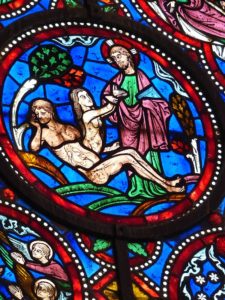
Needless to say, there is nothing new under the sun when it comes to the efforts of some to block or ban what they deem offensive or distasteful. Fortunately, arts and entertainment have survived and thrived in this country regardless of efforts to restrict or prohibit artistic expression. Imagine cautioning God to, “Hide the naughty parts,” when it came to sculpting a naked Adam and Eve.
So those in positions of authority, past and present, have deemed the profession which my parents, my sister, and I have lived and breathed, ate and drank from, taught, directed, wrote scripts and composed music for, performed in, and drew paychecks since the late 1940’s until this very day is deemed a “species of extravagance and dissipation,” illicit companions with horse-racing and cock-fighting. I beg your pardon. In my younger days when I was considering a professional future in the theater, a preacher warned me that “the theater is the devil’s playground.” I wanted to respond with, “And I can’t wait to get there,” but I restrained myself.
Growing up in the Arnold household, we had a parade of artists coming through our doors (and still do) that out numbered (and still does), all other demographic groups combined. They were and are some of the best company that we kept and keep.
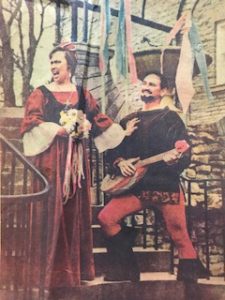
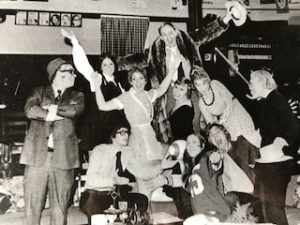
There is an expression in the South of someone being “raised right.” I’m not sure of the origin of the term, and it has been co-opted to mean everything from proper table manners to one’s political views. I do believe my siblings and I were raised right by parents who gave us a beautiful mixture of a living, breathing faith that looks like something, and a passion for and participation in the creation of all things artistic. This includes a love for all those people who are involved in such beliefs and pursuits. Our imagination might be the greatest gift we humans have and such a gift cannot be banned by laws or restricted by misguided biases.
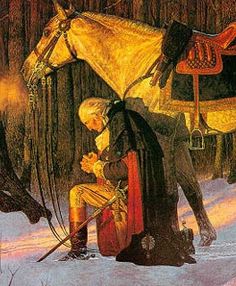
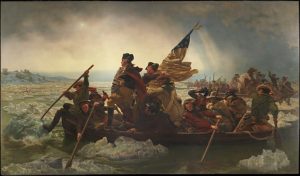
Artists have depicted our first president in a variety of iconic poses. We have the reverent Washington, the heroic Washington, and the gallant Washington. I wish an artist would paint a guffawing Washington while watching a comedy, or a misty-eyed Washington at the end of a moving tragedy. The list of benefits from experiencing all the arts are too numerous to mention here, but needless to say G.W.’s frequent attendance at the theater should lay to rest the notion that the Father of all Founding Fathers not only took pleasure in such pastimes but found the experience enlightening and invigorating to his immortal soul.
